Plants require a varied range of elements to grow, maintain physiological functions and reproduce. Of these elements, carbon, hydrogen and oxygen are absorbed from the air and from water. Some others, such as chloride and nickel, are needed in trace amounts that are usually found in soil. All the rest must be added by fertilization.
Plant nutrients are classified into three main groups, according to the relative amounts required.
Plant Nutrient Deficiency Identification
Macro nutrients
Nitrogen (N)
Functions: Nitrogen is a major component of proteins, hormones, chlorophyll, vitamins and enzymes essential for plant life, as well as genetic material (nucleic acids). Nitrogen metabolism is a major factor in stem and leaf growth (vegetative growth).
Typical deficiency symptoms: leaf yellowing, stunted growth.
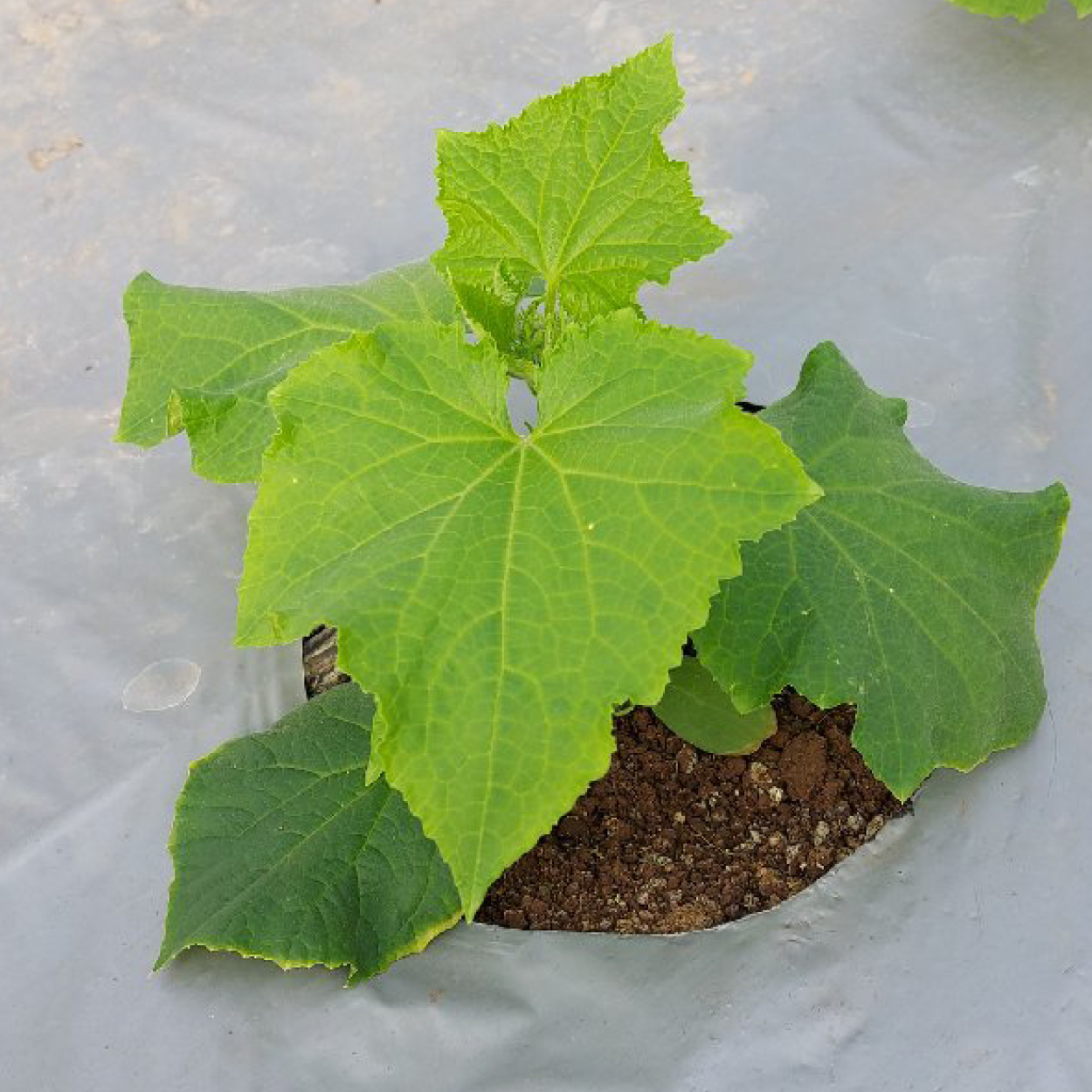 N deficiency in cucumber |  N deficiency in eggplant |
Note: During reproductive stages, nitrogen application must be regulated to avoid delay in flowering and fruit production.
Recommended nitrogen fertilizers: CoteN™, Poly-Feed™
Phosphorus (P)
Functions: As a component of ATP, the molecule that stores energy in the living cell, phosphorus is essential for all energy-consuming processes in the plant. It is a major ingredient in amino acids and a component of the cell membrane. Phosphorus is also related to the genetic material in plants, and necessary for seed germination, photosynthesis, protein formation, flower and fruit formation, and almost all growth and metabolism processes.
Typical deficiency symptoms: stems and leaves turn purple, retarded growth and maturation, poor flowering, premature drop of flowers and fruits.
See examples of P deficiency in some crops.
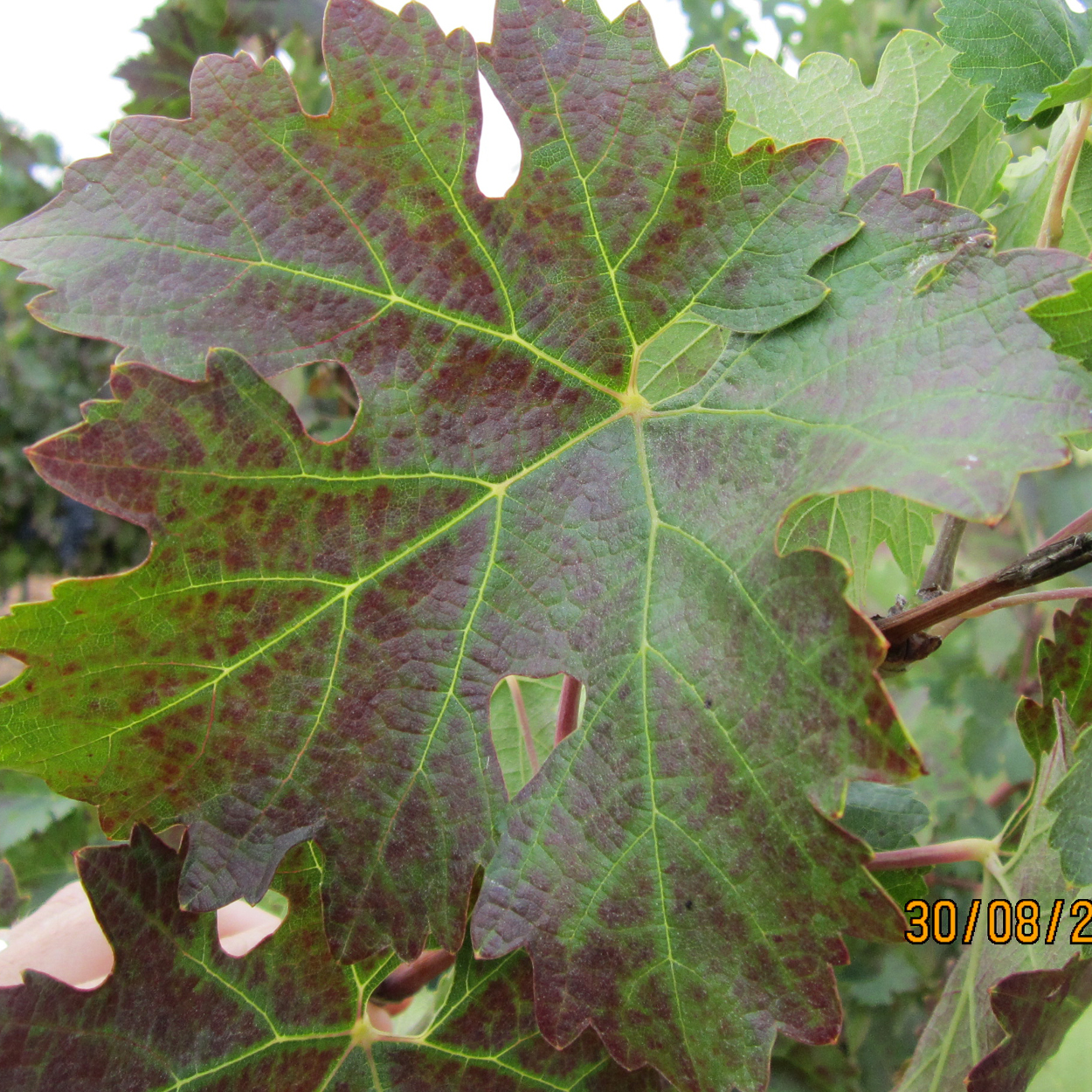 P deficiency in grape vine |  P deficiency in strawberry |
Note: Phosphorus features low solubility and undergoes a variety of reactions in the soil that make it unavailable for plant uptake. Therefore, it should be supplied close to the roots and in synchronization with plant needs.
Recommended phosphorus fertilizers: Haifa MAP™, Haifa MKP™, Haifa P™, VitaPhos-K™, GrowClean™
Potassium (K)
Potassium is responsible for the opening and closing of stomata, hence necessary for adjustment of water balance in the plant.
Potassium also enhances flavor and color on fruit and vegetable crops and increases the oil content of fruits and is important for leafy crops.
Typical deficiency symptoms: leaf yellowing between the veins, mottled, spotted or curled leaves, scorches or burns may be seen on leaves.
Deficiency symptoms appear on older leaves first.
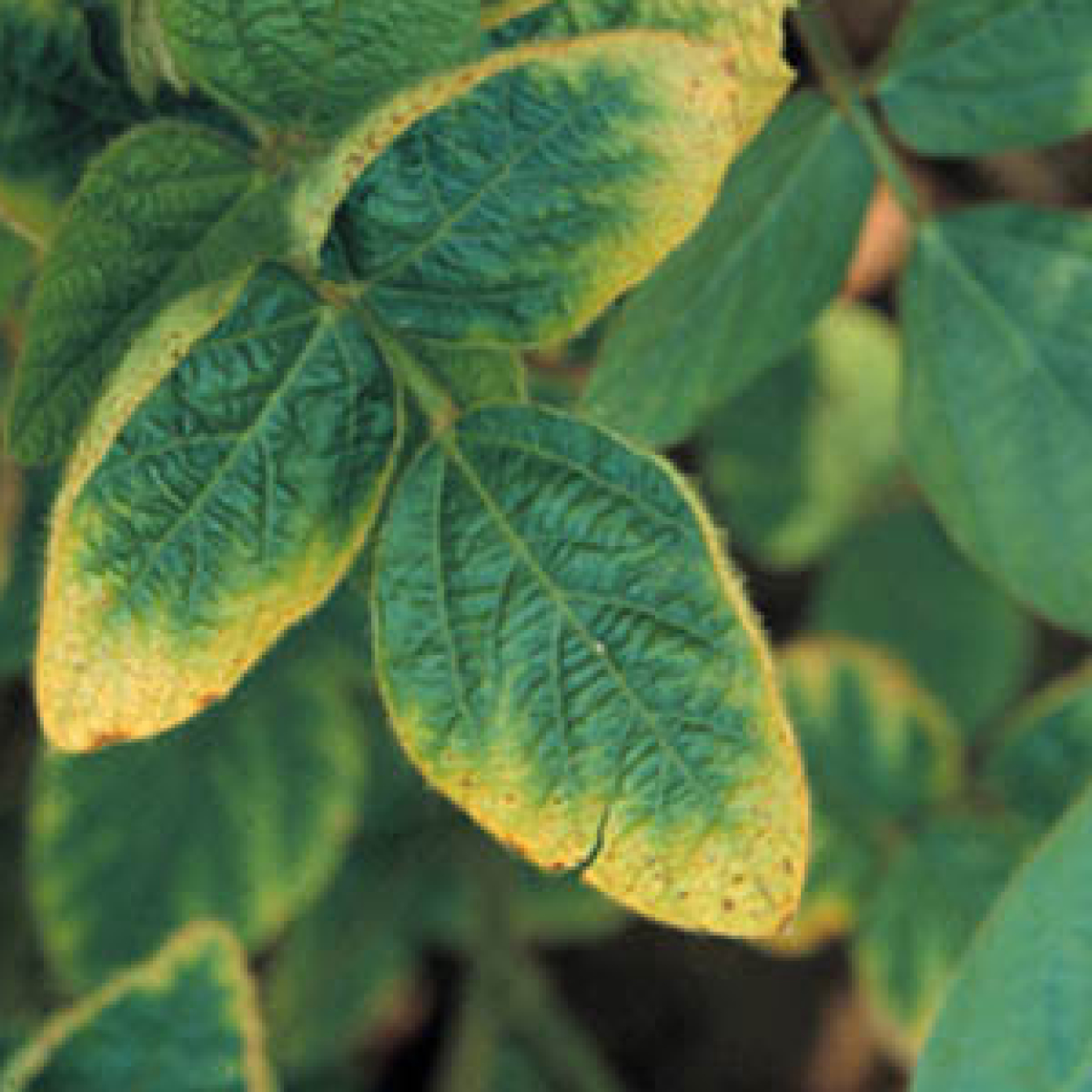 K deficiency in potato K deficiency in potato | 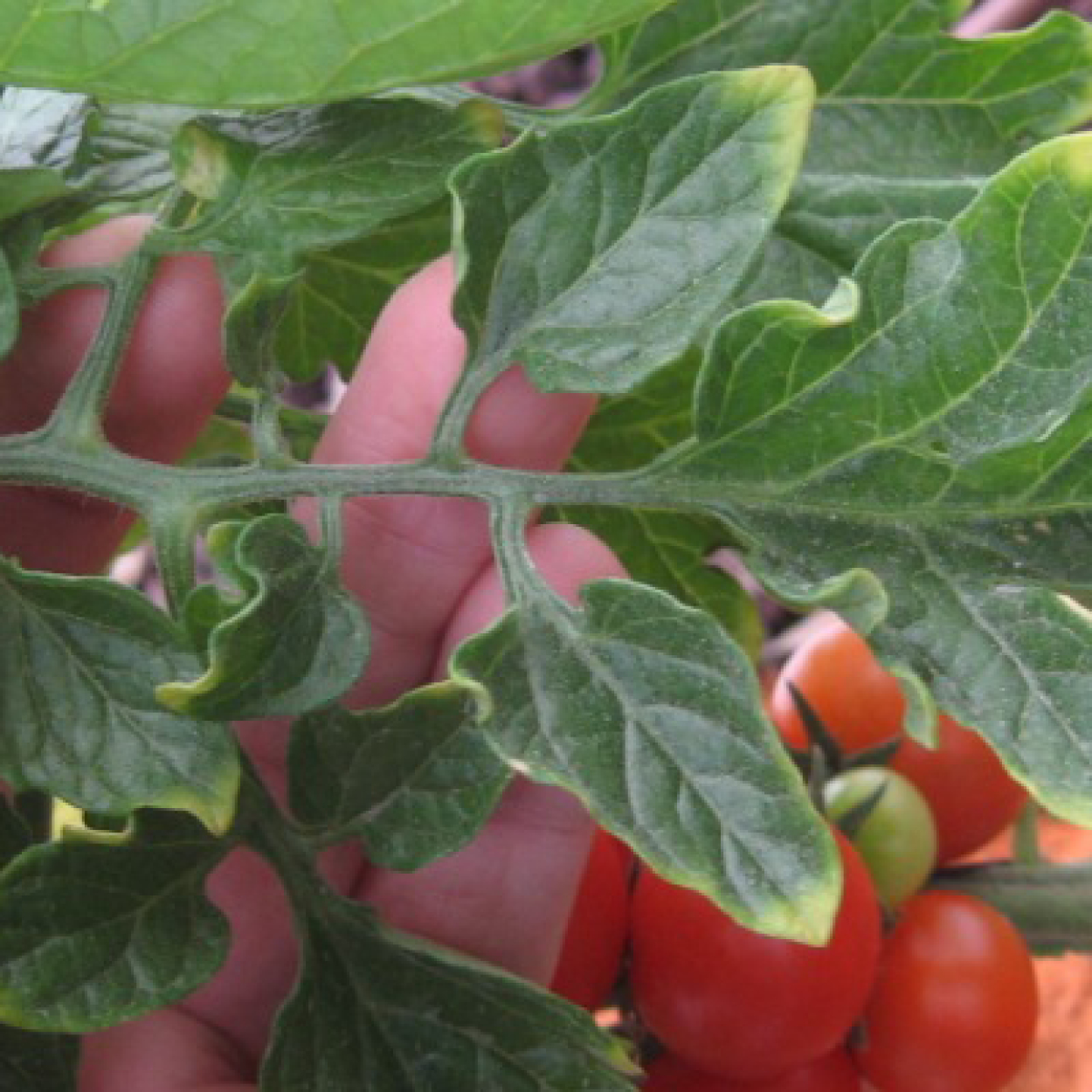 K deficiency in tomato |
Recommended potassium fertilizers: Multi-K™, Haifa Bonus™, Haifa SOP™
Secondary nutrients
Calcium (Ca)
Typical deficiency symptoms: localized rot of tissues, and a consequent growth inhibition, leaf tip burn and root tip burn. Blossom End Rot (BER) is a common physiological disorder in tomato and pepper, associated with calcium deficiency. Eggplant and watermelon are susceptible to a lesser extent.
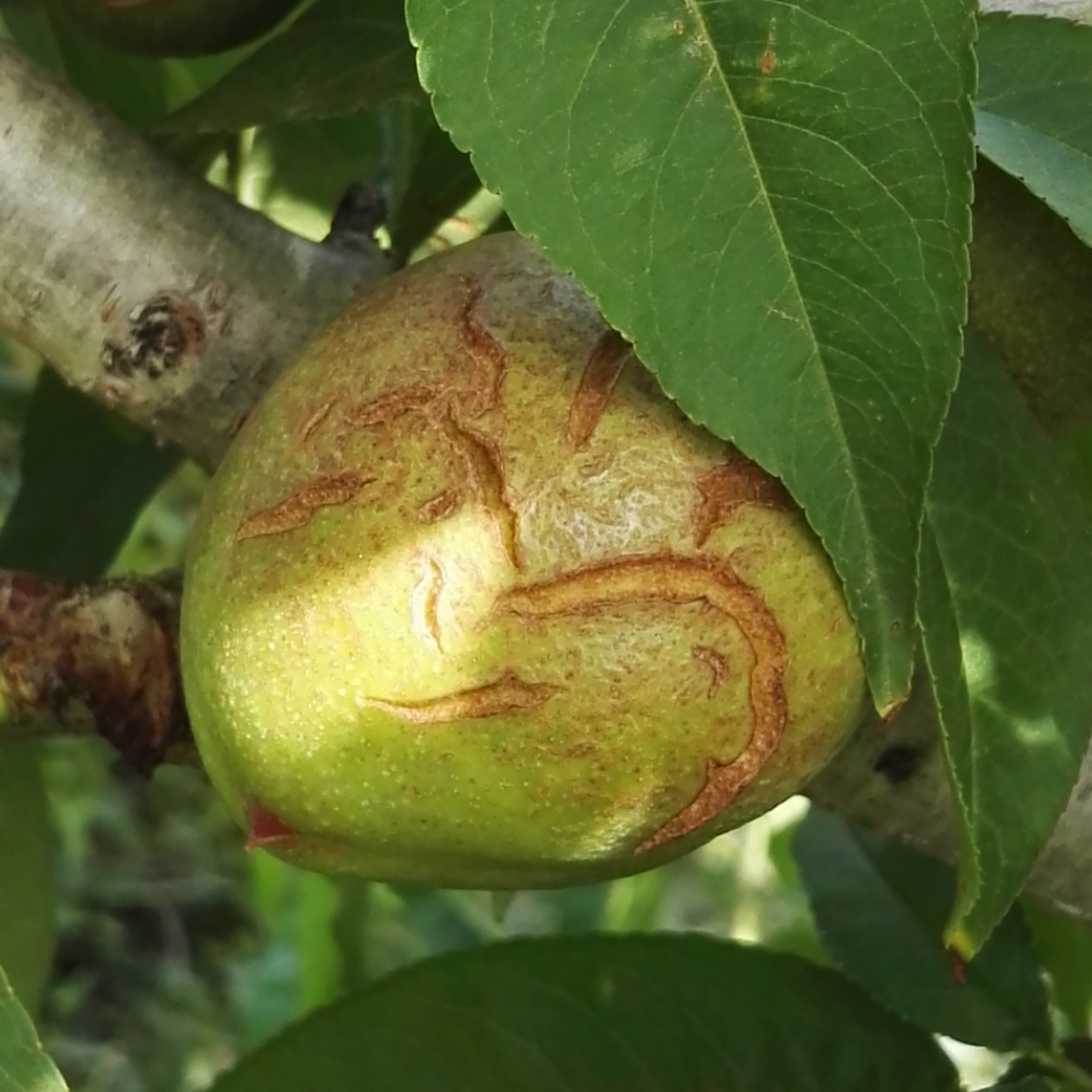 Ca deficiency in peach Ca deficiency in peach | 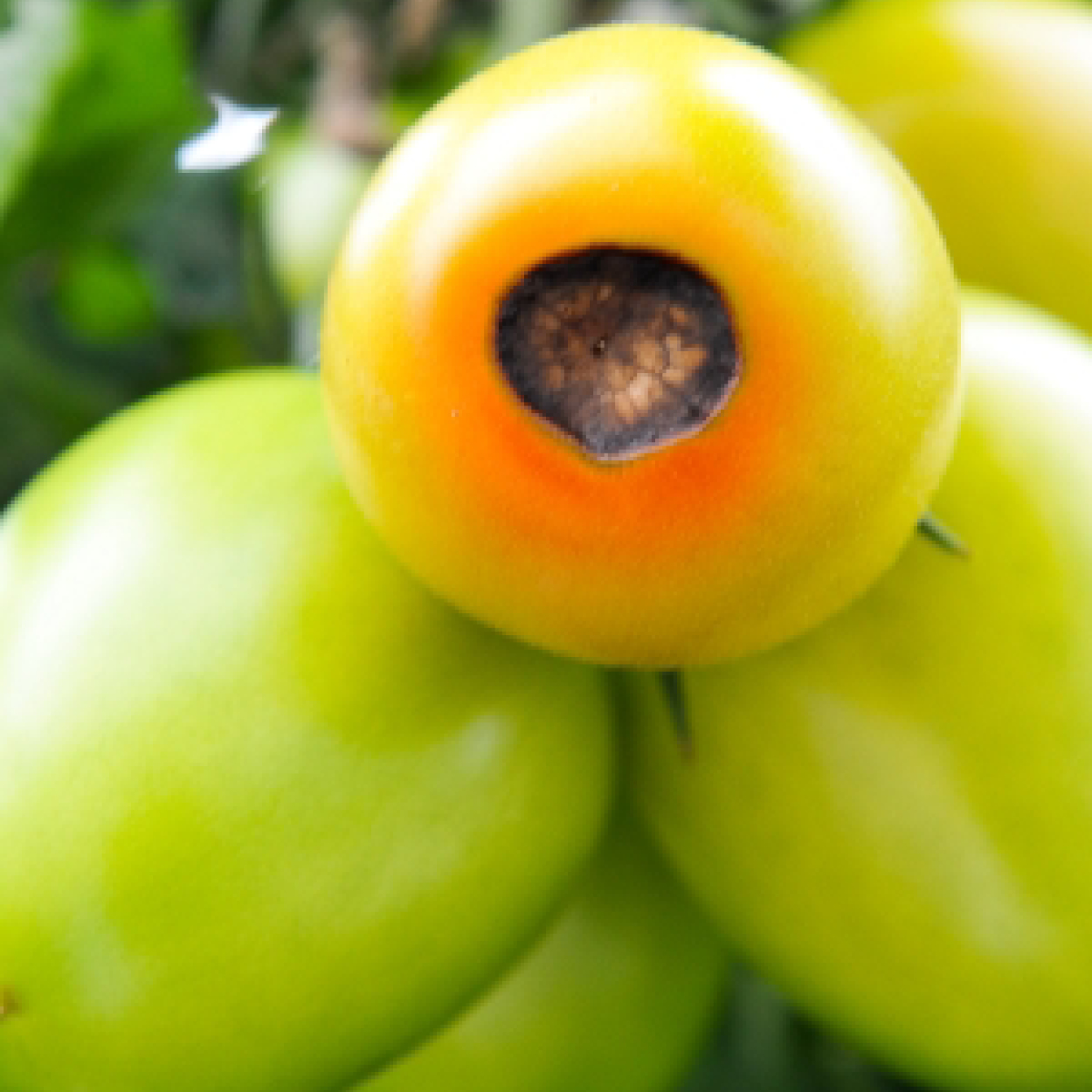 Ca deficiency in tomato |
Note: As the mobility of calcium in the plant is limited, it must be supplied throughout the growth season to keep adequate levels in the plant tissues and to ensure proper development.
Magnesium (Mg)
Typical deficiency symptoms: yellow bands between leaf veins. The symptoms appear first on older leaves and move towards young leaves as deficiency worsens. In severe cases, necrosis may appear.
 Mg deficiency in tomato |
Recommended magnesium fertilizers: Haifa Mag™, BitterMag™
Sulfur (S)
Micronutrients
Iron (Fe)
Functions: Iron is Involved in plays an important role in chlorophyll formation. It is involved in cell division that supports plant growth, and in other vital reactions in the plant.
Typical deficiency symptoms: young leaf yellowing, interveinal chlorosis.
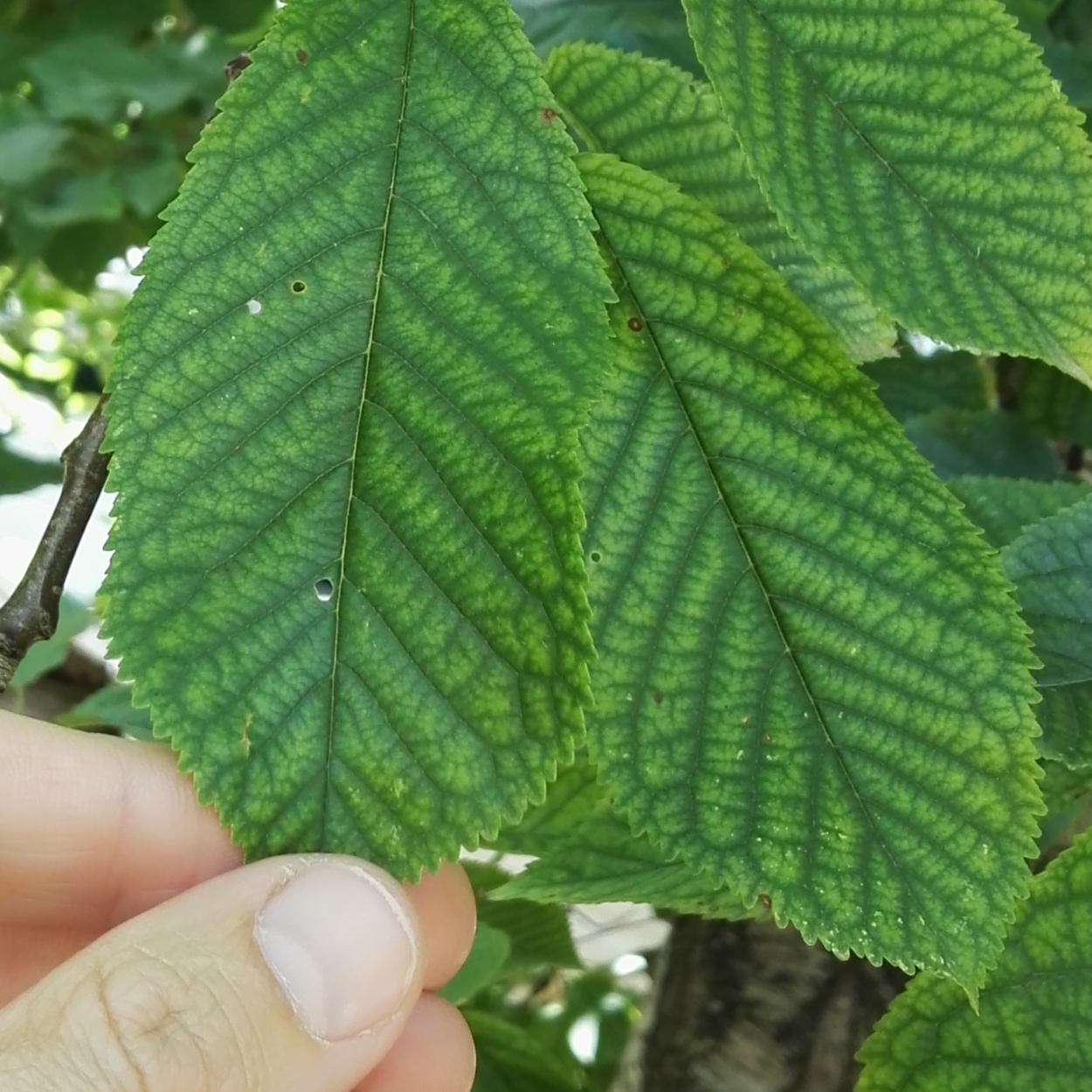 Fe deficiency in cherry Fe deficiency in cherry |  Fe deficiency in tomato |
Recommended iron fertilizers: Haifa Micro™ Fe 13, HaiFer™, Haifa Micro™ Top Iron, HaiFer™ Max
Manganese (Mn)
Typical deficiency symptoms: primarily appear in young leaves chlorotic mosaic patterns on leaves.
 Mn deficiency in plum Mn deficiency in plum | 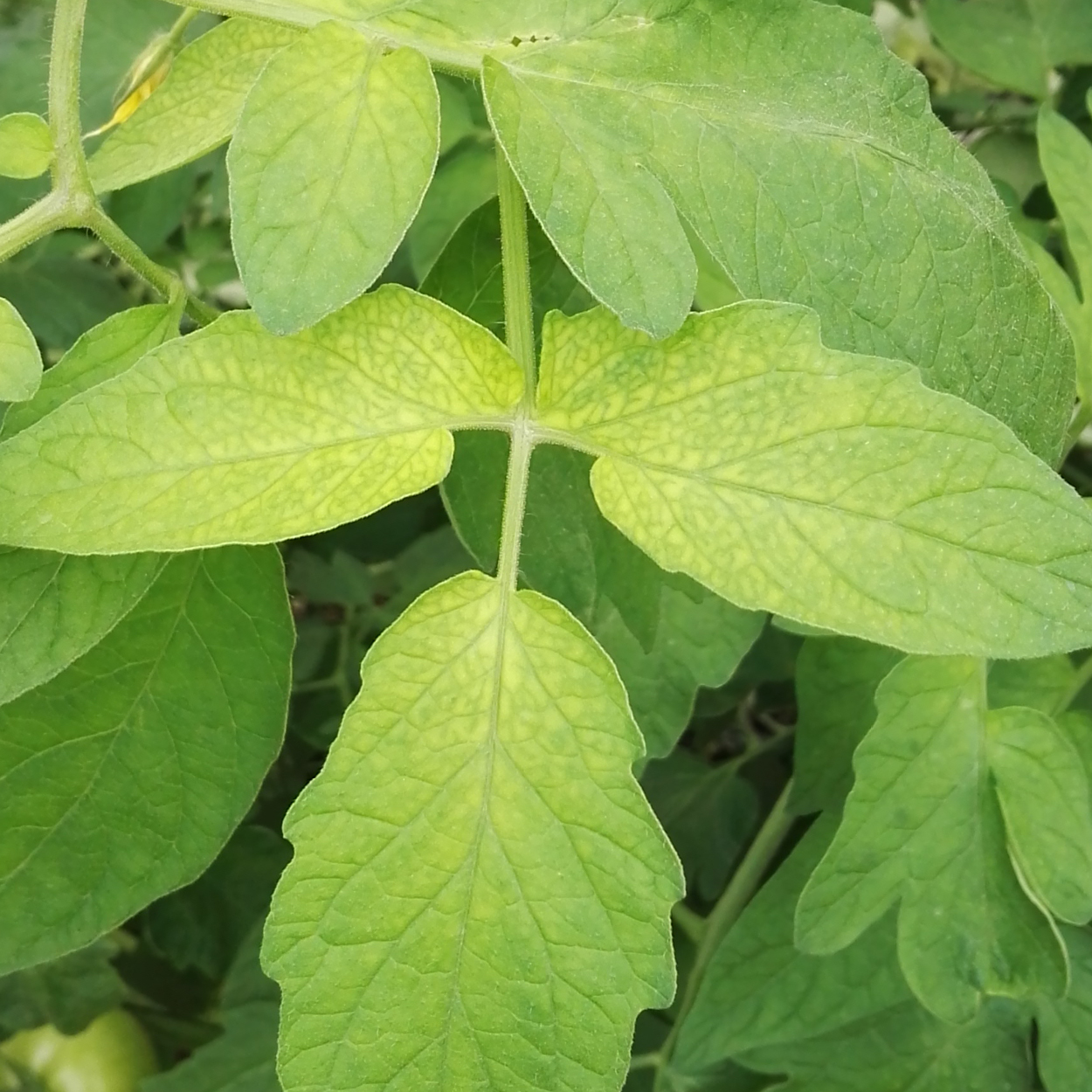 Mn deficiency in tomato |
Note: In acidic soils, manganese may be available in excess, and even reach toxic levels.
Boron (B)
Typical deficiency symptoms: Impaired growth and broken stems, death of shoot tips, leading to multiple lateral branches (bush-like shape).
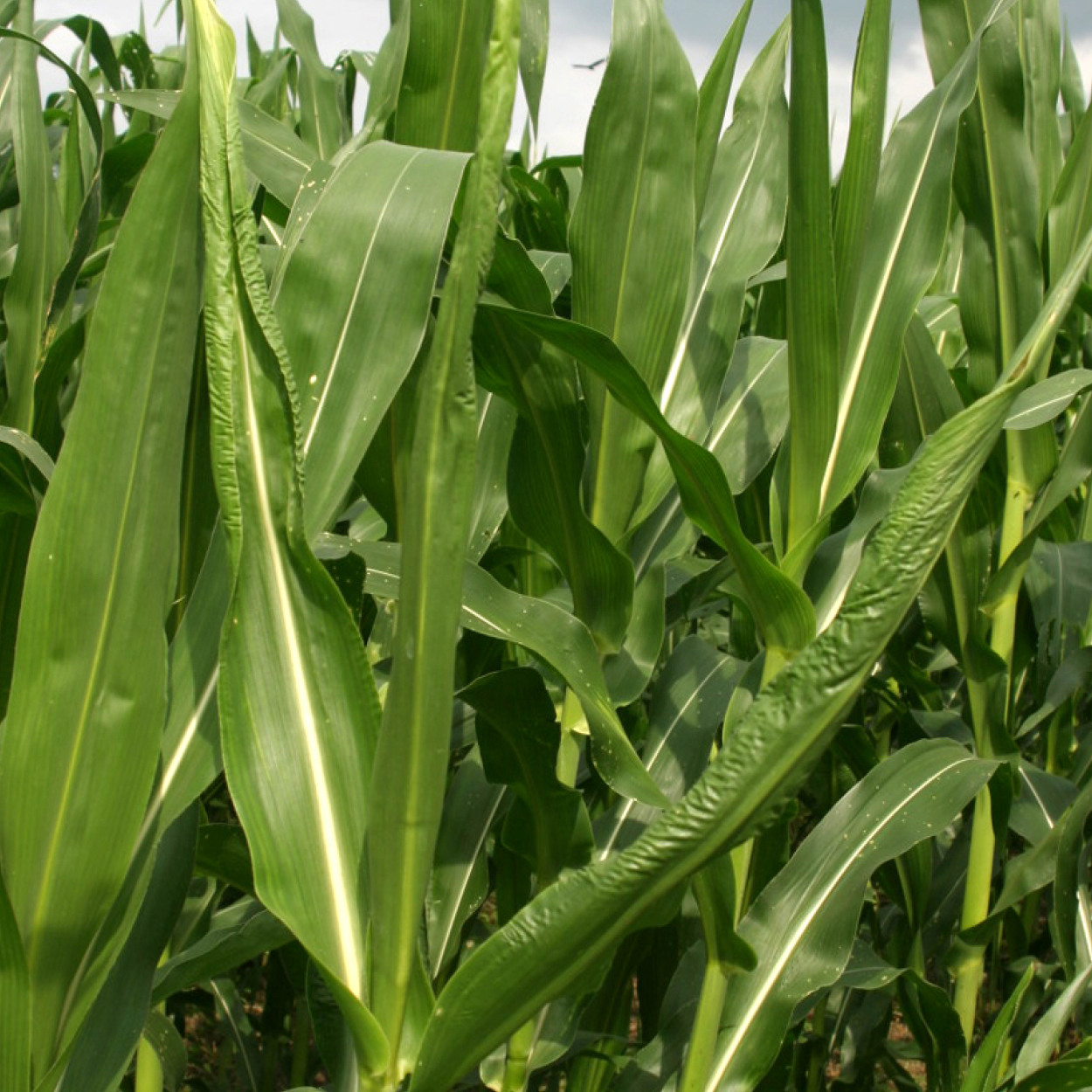 B deficiency in corn B deficiency in corn |  B deficiency in tomato |
Note: Boron deficiency is the most prevailing micronutrients deficiency. However, as the optimal boron level for plants is narrow, it must be supplied very carefully, to avoid toxic excess.
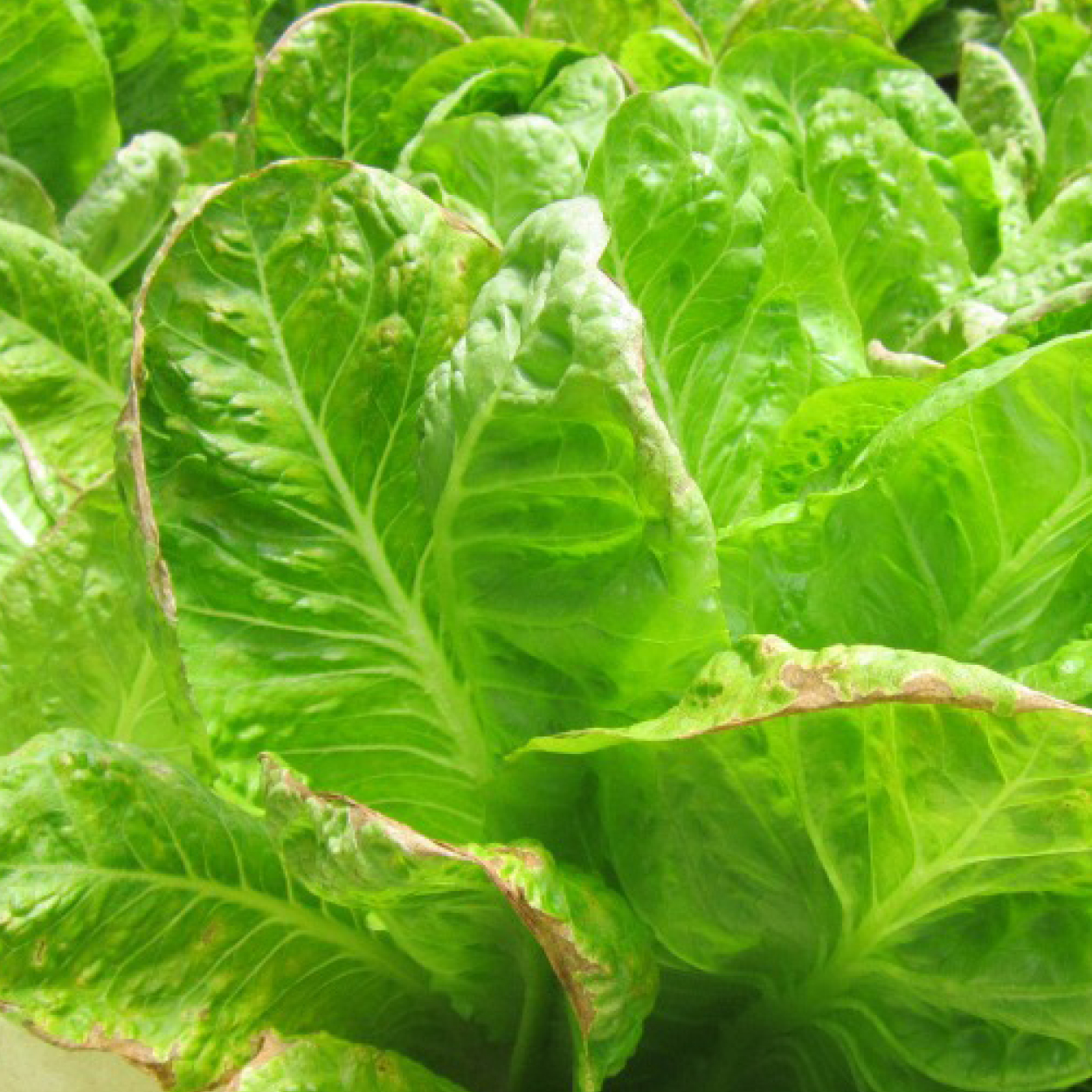 B toxicity in lettuce |
Recommended boron fertilizer: Haifa Micro™ Bor-feed
Zinc (Zn)
Functions: Zinc is a component or functional cofactor in many enzymes, including auxins (plant growth hormones). It is essential for carbohydrate metabolism, protein synthesis and internodal elongation (stem growth)
Typical deficiency symptoms: mottled leaves with irregular chlorotic areas
 Zn deficiency in mango Zn deficiency in mango | 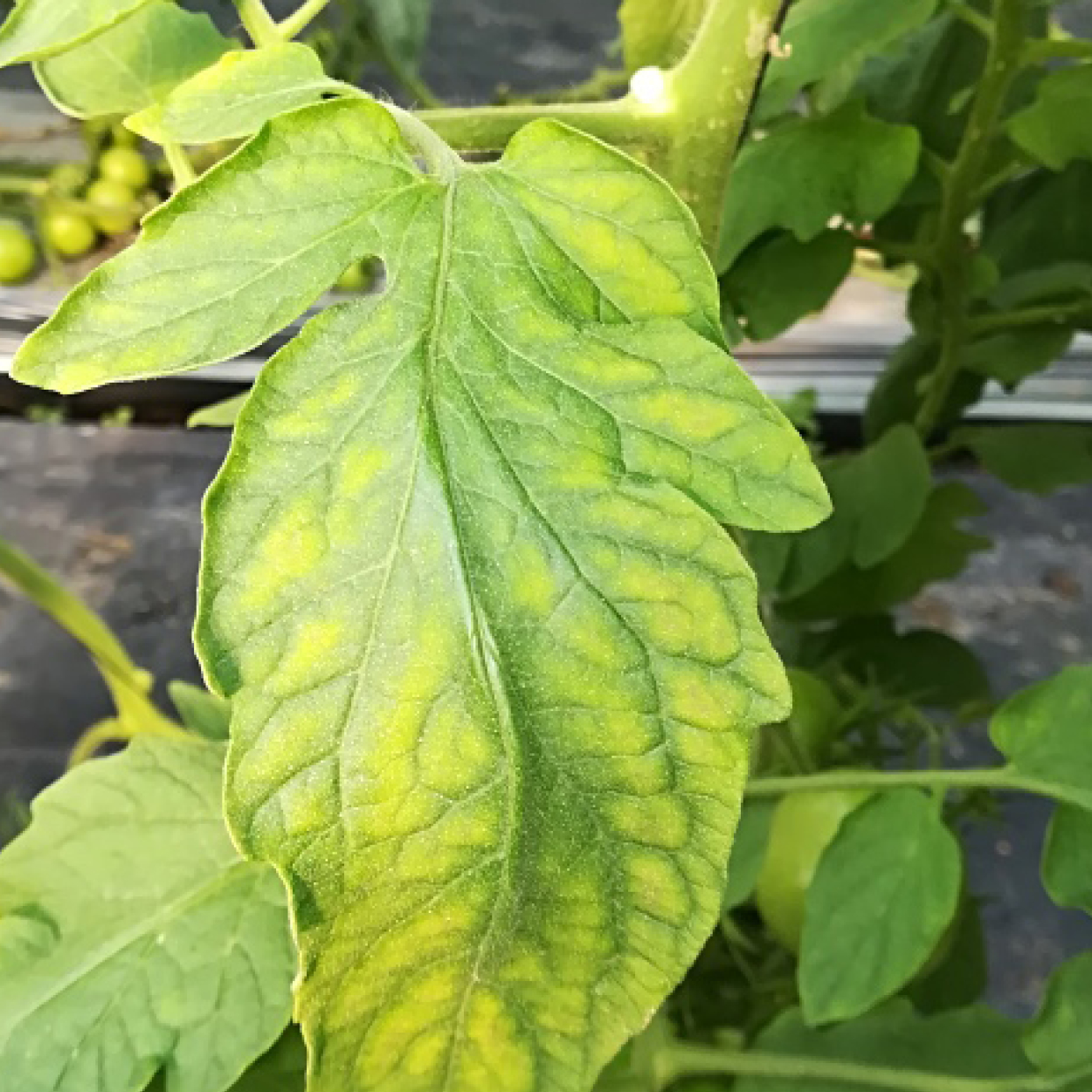 Zn deficiency in tomato |
Note: Zinc deficiency leads to iron deficiency causing similar symptoms
Recommended zinc fertilizer: Haifa Mico™ Zn 15
Copper (Cu)
Functions: Copper is involved in nitrogen and carbohydrates metabolism. It is a component of several enzymes, including enzymes that take part in photosynthesis and respiration.
Typical deficiency symptoms: brown spots on terminal leaves, shoot tips die back.
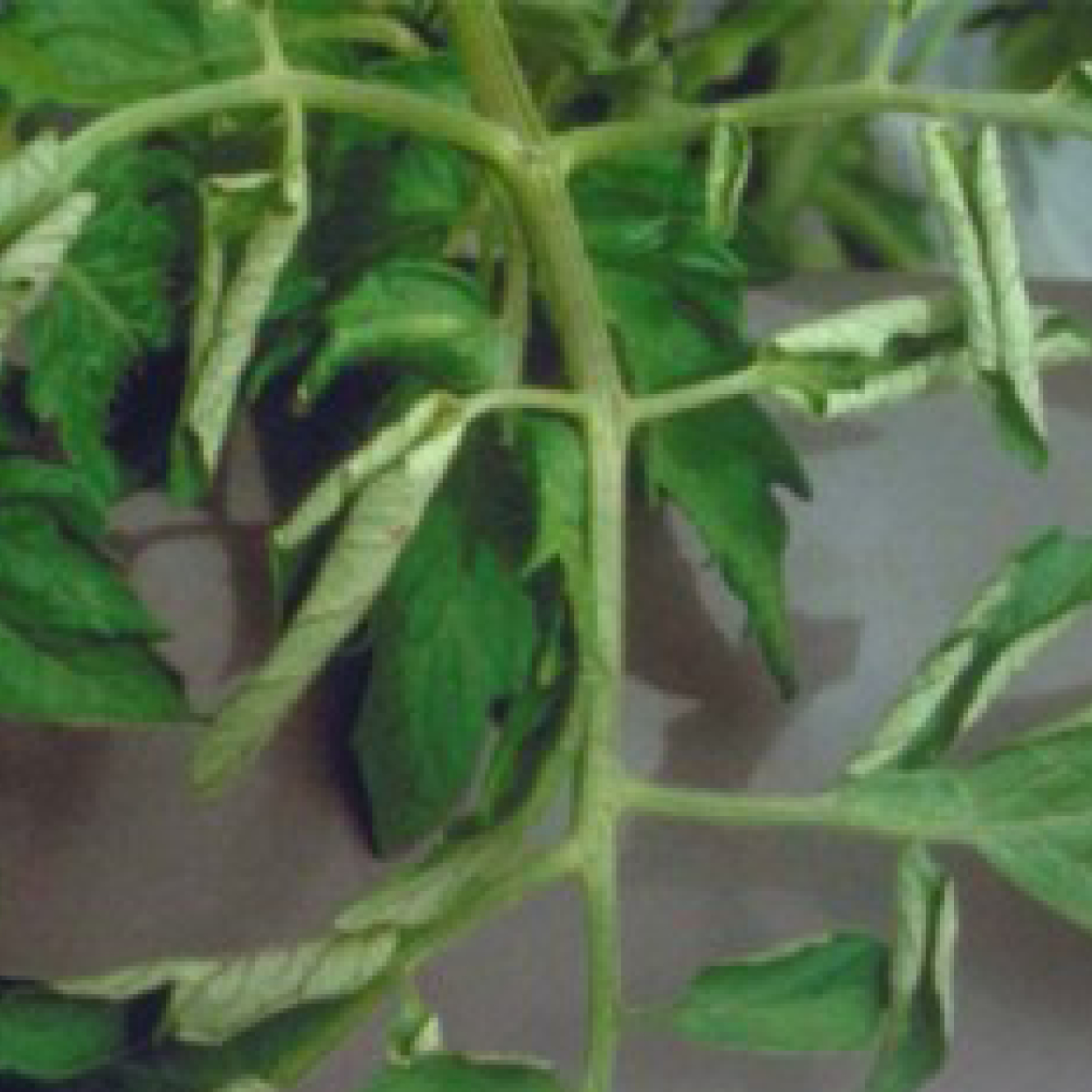 Cu deficiency in tomato Cu deficiency in tomato | 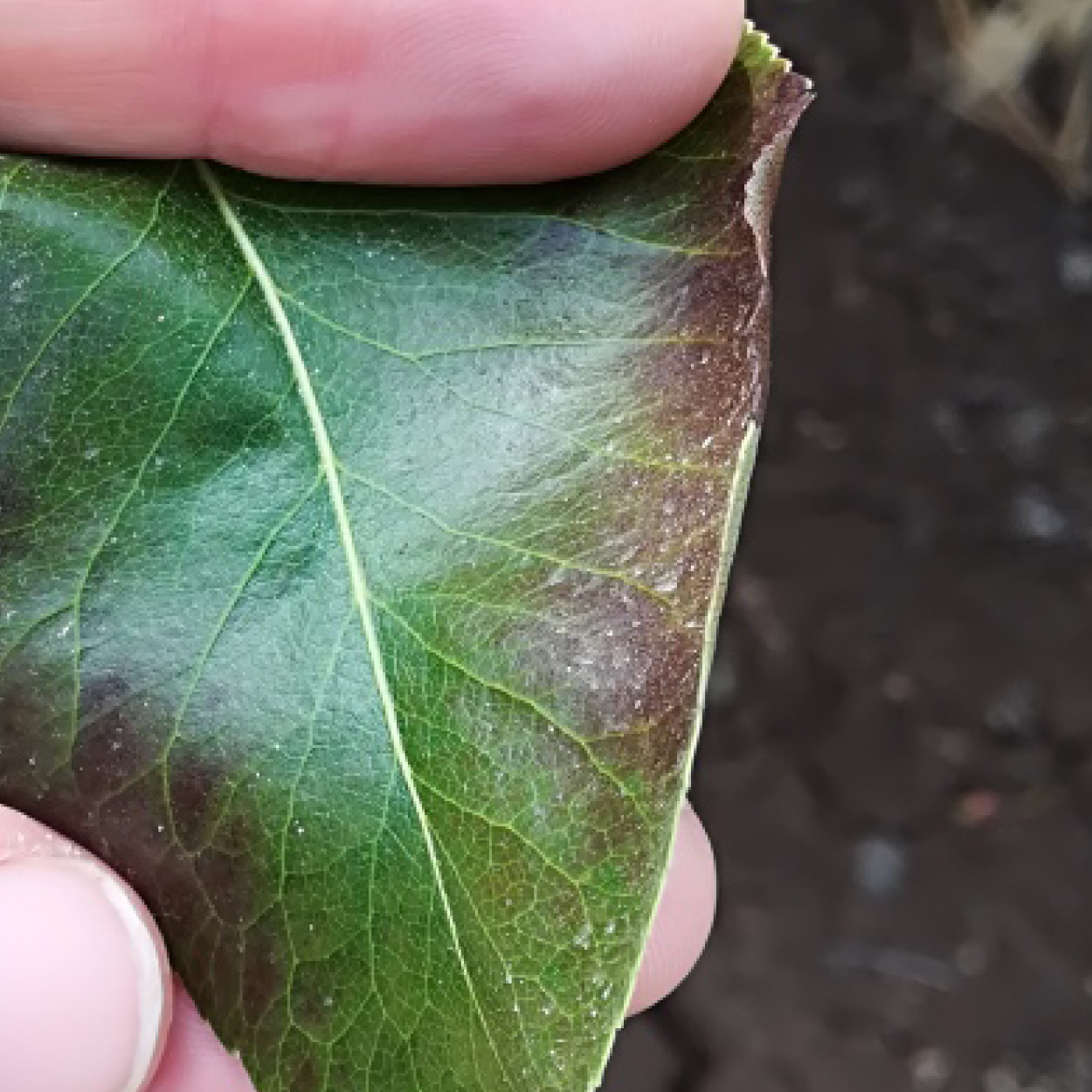 Cu deficiency in pear |
Note: Copper has a strong tendency to bind to organic matter, hence may be deficient in highly organic soils.
Recommended copper fertilizer: Haifa Micro™ Cu 15
Molybdenum (Mo)
Functions: Molybdenum is involved in many enzymes and is closely linked with nitrogen metabolism as it is an important component of nitrate-reductase and nitrogenase enzymes.
Typical deficiency symptoms: pale green leaves with rolled or cupped margins
Recommended molybdenum fertilizer: Haifa Micro™ Combi, Haifa Micro™ soilless mix, Haifa Micro™ hydroponic mix






